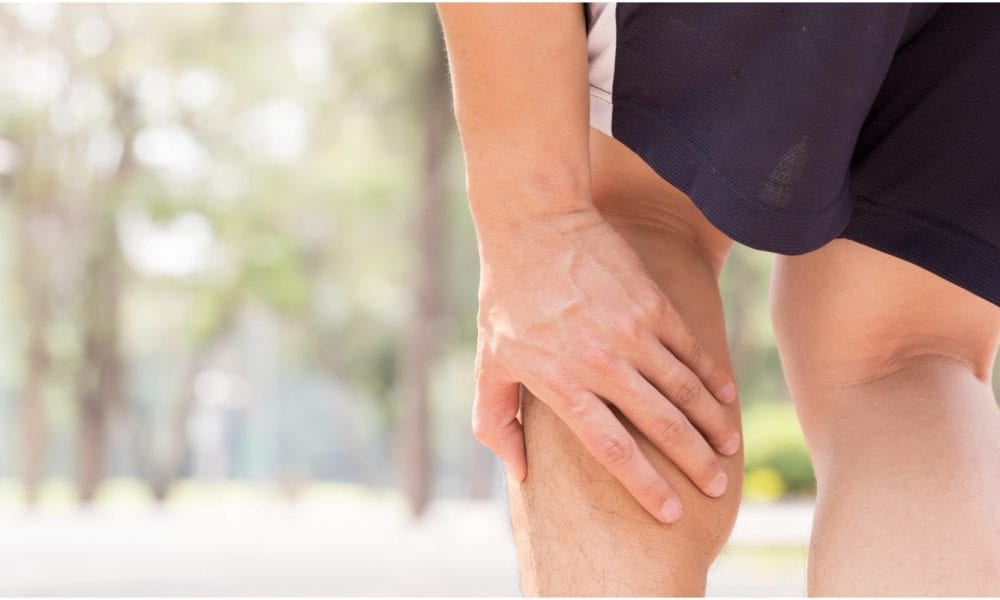
This Is What You Should Be Looking for in Your Diet If You’re After Speedy Muscle Recovery

It can be pretty tough to maintain a fitness schedule. An exercise regimen can be great for an active, healthy lifestyle, giving you confidence, a boost in energy, and helping you sleep better. Of course, when you experience muscle soreness, it becomes difficult for routine to be maintained, and it can be hard even to move to perform daily tasks. For this reason, you must give your muscles the attention they need. You don’t have to rely on a pain pill to find relief, though. Fortunately, there are vitamins and nutrients available in fresh foods that you can consume after training to help your muscles speed up recovery.
Vitamin C
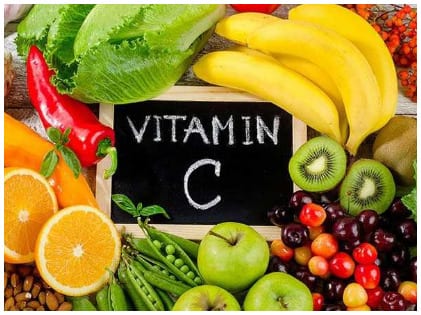 Ascorbic acid, or vitamin C, is a potent antioxidizing compound that helps to boost collagen production. Collagen is the connective tissue that serves to repair skin tissues and blood vessels, even tendons in the body. Another purpose served by vitamin C is to flush lactic acid out of the muscles.
Ascorbic acid, or vitamin C, is a potent antioxidizing compound that helps to boost collagen production. Collagen is the connective tissue that serves to repair skin tissues and blood vessels, even tendons in the body. Another purpose served by vitamin C is to flush lactic acid out of the muscles.
Lactic acid build-up results in stiffness in the muscles. You can increase your vitamin C levels by consuming citrus fruits, bell peppers, broccoli, sweet potatoes, strawberries, pineapples, cabbage, or cantaloupe. Think of throwing together a fruit salad, or even a smoothie.
Vitamin D
This wonder vitamin does fantastic things for the body. Vitamin D is a vital nutrient for the system as it aids in calcium absorption. As we all know, calcium absorption is essential for the development and maintenance of healthy bones and muscles. Vitamin D also does a lot to reduce inflammation in the body, which is another way it aids in muscle recovery after a training session.
Vitamin D also regulates the immune system. You can find vitamin D in liver oils, fatty fish, meat and eggs, and in fortified milk products and cereals. Also, you could work out in the sunlight, which encourages vitamin D production in the body.
Vitamin E
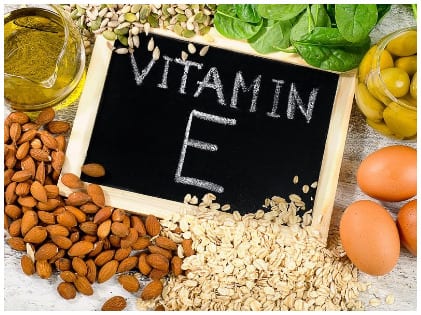 When you perform a strenuous workout, creatine phosphokinase enters your bloodstream. This is a protein otherwise referred to as CPK. This protein needs to exit the blood as quickly as possible. Vitamin E aids the body in getting rid of CPK efficiently.
When you perform a strenuous workout, creatine phosphokinase enters your bloodstream. This is a protein otherwise referred to as CPK. This protein needs to exit the blood as quickly as possible. Vitamin E aids the body in getting rid of CPK efficiently.
Vitamin E also can protect the cells of your body from free radicals. You can increase your vitamin E levels by eating almonds, sunflower seeds, olives, wheat germ, fortified cereals, and avocadoes.
B Vitamins
You most certainly have heard of B complex vitamins, and perhaps you already know that this complex is composed of eight B vitamins that all work to assist the body in performing several functions better and more efficiently. These B vitamins help the body to breakdown proteins and carbohydrates in the foods you consume, and they also boost your body’s ability to repair muscle. B vitamins are especially essential when it comes to cell development. If you happen to be deficient in B vitamins, you will experience muscle aches and cramps. B vitamins can be naturally sourced in kale, swiss chard, legumes, dates, salmon, squashes, whole grains, and dairy.
Vitamin A
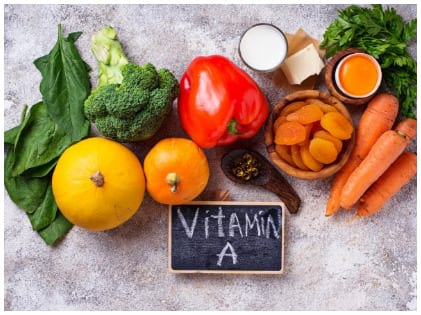 While everyone talks about the importance of Vitamin A and vision, not many know how it aids in healing. Yes, that’s right, Vitamin A is a powerful vitamin when it comes to helping your body recover from injuries. Vitamin A is effective in strengthening the immune system and the major organs in the body to function well. Foods like organ meats, dairy, salmon, pumpkin, carrots, cantaloupe, and apricots give your body an ample dose of this nutrient.
While everyone talks about the importance of Vitamin A and vision, not many know how it aids in healing. Yes, that’s right, Vitamin A is a powerful vitamin when it comes to helping your body recover from injuries. Vitamin A is effective in strengthening the immune system and the major organs in the body to function well. Foods like organ meats, dairy, salmon, pumpkin, carrots, cantaloupe, and apricots give your body an ample dose of this nutrient.
Try adding a carrot salad or a helping of pumpkin to your meal to boost your vitamin A levels. Try to limit your consumption of organ meats as these are high in cholesterol, which is not good for your cardiovascular health. However, having organ meats once or twice a month is very nutritious.
The tiny tears in the muscle fibers that result in pain are certainly very welcome because these tiny tears are what causes you to build muscles. Muscle is built during recovery, not in the gym or during your training session. Make sure you place ample focus on muscle recovery rather than just hitting the gym. That’s because, without proper healing, you’ve been sweating in the gym for nothing!
More in Nutrition & Weight Loss
-
`
The Physical Signs of Hunger and How Mindful Eating Makes a Difference
Hunger is one of the most basic yet essential signals our body uses to communicate its need for energy. However, many...
December 15, 2024 -
`
Why Did Chris Pratt Call Anna Faris Before Proposing to Katherine?
Chris Pratt, the beloved star of “Guardians of the Galaxy,” made headlines when he revealed that he called his ex-wife, Anna...
December 3, 2024 -
`
6 Proven Tips to Tackle Insurance Claim Denials Successfully
Claim denials are a common hurdle for healthcare providers and professionals, even for those who follow the necessary procedures to avoid...
December 1, 2024 -
`
5 ‘Bad’ Fitness TikTok Trends You Shouldn’t Follow
TikTok has become a haven for creative fitness advice. But not all trends are worth your time or your health. From...
November 23, 2024 -
`
Does Drinking Water Affect Adrenal Hormones?
Drinking water is often seen as a simple way to stay hydrated, but it has deeper effects on our body than...
November 14, 2024 -
`
Why We Feel the Loss of Celebrities So Deeply?
Celebrity grief might sound strange at first. After all, most of us have never met these famous figures in person, yet...
November 5, 2024 -
`
Are High Deductible Insurance Plans as Ideal as They Appear to Be?
High deductible insurance plans have been a hot topic for years, especially as healthcare costs continue to rise. For many Americans,...
October 31, 2024 -
`
How Training Load Data Can Transform Your Exercise Routine
Tracking progress during workouts is challenging. Simple metrics like mileage or time don’t show the whole picture. Understanding the overall effort...
October 26, 2024 -
`
Katy Perry’s Weight Loss Journey: Secret Diet Tips Revealed
Katy Perry’s weight loss journey has been making headlines, with the pop star shedding 20 pounds over the past few months....
October 16, 2024











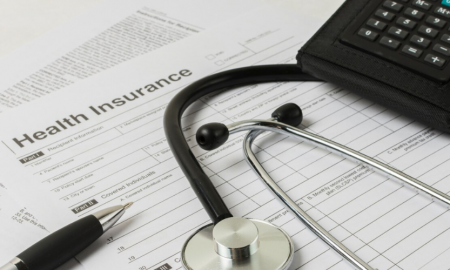



You must be logged in to post a comment Login